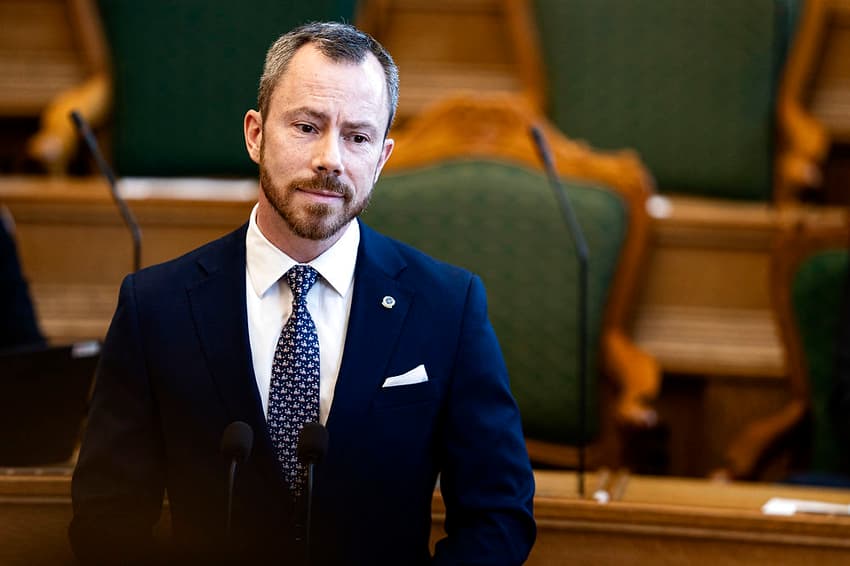Danish opposition leader expects 'some' refugees to have long-term future in country

Jakob Ellemann-Jensen, the leader of the opposition Liberal (Venstre) party, thinks some refugees will probably remain in Denmark for the long term if conflicts in their homelands continue to rage.
The comments from the new Liberal leader, made in an interview with Weekendavisen, appear to be in contrast to a policy known as ‘paradigm shift’ adopted by Danish conservative parties under the previous government, based on the principle that refugees should be sent home as soon as it is deemed safe by authorities to do so.
READ ALSO: Denmark's parliament passes 'paradigm change' asylum bill
“If you have fled from war, death and destruction in your home country, you should in principle go back when the situation is over. But that still means that while you are in another country, you should work and participate in society,” Ellemann-Jensen said.
“If there’s been conflict in the home country for 15 or 20 years, and people have children who have grown up here does it make sense to talk about going back to home countries or does it not?”, he continued.
“The reality is that some will probably end up staying and so we should prepare ourselves for that, including by making sure they find jobs,” the Liberal leader said.
A report on Friday meanwhile revealed that 71 Syrian refugees have since May 1st been paid by the state to leave Denmark, under an incentive scheme.
READ ALSO: Denmark pays 71 Syrians to leave country
Ellemann-Jensen also told Weekendavisen that he could understand why refugees look to Denmark for asylum.
“That doesn’t mean that all of them should be here. But it does mean we should be decent in how we speak about and to other people,” he said.
Comments
See Also
The comments from the new Liberal leader, made in an interview with Weekendavisen, appear to be in contrast to a policy known as ‘paradigm shift’ adopted by Danish conservative parties under the previous government, based on the principle that refugees should be sent home as soon as it is deemed safe by authorities to do so.
READ ALSO: Denmark's parliament passes 'paradigm change' asylum bill
“If you have fled from war, death and destruction in your home country, you should in principle go back when the situation is over. But that still means that while you are in another country, you should work and participate in society,” Ellemann-Jensen said.
“If there’s been conflict in the home country for 15 or 20 years, and people have children who have grown up here does it make sense to talk about going back to home countries or does it not?”, he continued.
“The reality is that some will probably end up staying and so we should prepare ourselves for that, including by making sure they find jobs,” the Liberal leader said.
A report on Friday meanwhile revealed that 71 Syrian refugees have since May 1st been paid by the state to leave Denmark, under an incentive scheme.
READ ALSO: Denmark pays 71 Syrians to leave country
Ellemann-Jensen also told Weekendavisen that he could understand why refugees look to Denmark for asylum.
“That doesn’t mean that all of them should be here. But it does mean we should be decent in how we speak about and to other people,” he said.
Join the conversation in our comments section below. Share your own views and experience and if you have a question or suggestion for our journalists then email us at [email protected].
Please keep comments civil, constructive and on topic – and make sure to read our terms of use before getting involved.
Please log in here to leave a comment.